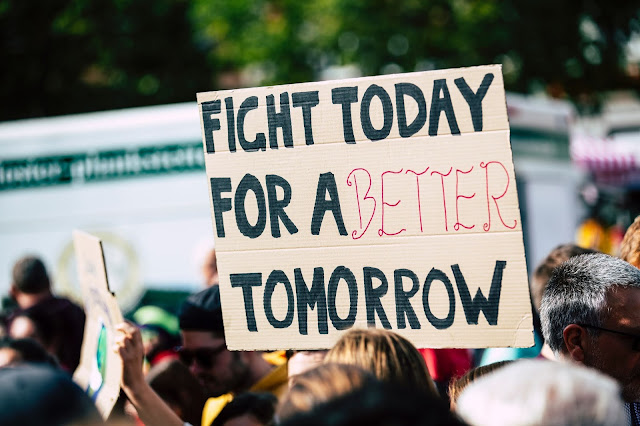You Can Make A Difference
There are billions of people in the world who wish their biggest problems were a cluttered house, an over-busy schedule, picky kids, and that extra 20 pounds.
Billions of people don't worry if they have the latest phone, the trendiest clothes, nail art, or a luxury car. They worry about food, water, and shelter. They worry that a mosquito bite will make them sick, or that their child will have to leave school to work in a factory for pennies like they do.
 |
We didn't choose to be born with all the blessings we have. We didn't steal anything. But if we keep it all for ourselves, and indulge in cheap products made by the poor and exploited, then we're doing wrong.
Don't wallow in guilt, but do start making different choices.
Pay attention to how marketing makes you feel.
The goal of advertising is to make us discontented so we'll buy whatever they're selling. Marketers try to convince us that we need their product to improve our lives, that we'll be more interesting, sexier, and happier if we just buy now. That message is constant.
The innate drive that we all have for self-improvement is used to get us to buy something that promises to meet that need. But the excitement of a new acquisition fades quickly, and we have to buy again and again for less and less enjoyment.
Stay out of that trap. Notice your reactions to magazines (especially fashion and lifestyle publications), TV, and social media.
Don't just buy – wait.
When you see something you think you want, ask yourself, "Do I really want or need this, or am I just responding to clever marketing?" If you didn't even know the product existed until you saw it in the store or online, pause before letting yourself buy. Even 24 hours can help you think more clearly.
There are other steps you can take to blunt your "buy it now" tendencies. Delete shopping apps from your phone, unsubscribe from sale notifications, remove your credit card details from online store accounts, and carry only cash when shopping.
Don't just declutter – de-own.
Author and blogger Joshua Becker reminds us that we can have access to many things we need without owning them. We can borrow, rent, use community resources such as parks and libraries, and repair and keep our old things.
If we do need to buy, there are more options than running to the nearest big box store. We can buy used, and buy ethically. We can buy high quality items and take good care of them.
Care less, and care more.
This idea comes from Brooke McAlary, author of Slow: Simple Living for a Frantic World.* She suggests that it's appropriate to care less about trends and fads, the opinions of other people, competition, or your own ego, and care more about quality, the stuff you already own and use, and the people making the items you buy.
Get started with this ethical shopping guide.
Give as much as you can.
Start by giving away what you don't need and use, rather than taking time to sell it. Continue by giving your time and talents to a cause you care about such as your local church or school, a food pantry, an animal shelter, or a local environmental effort.
Make an even greater difference by giving money to highly effective charities. Can you give 1% of your income (or even more)? Or maybe you could give up one coffee drink or one restaurant meal every week and donate that amount. Or set up an automatic donation of $10 or $20 from every paycheck. Or save all of your coins in a jar, and donate the total every month.
Give because it helps those who need it. Give because it adds meaning to your life. Give because it makes you happy. Give because you have been blessed.
Updated February 2023





Comments
Post a Comment